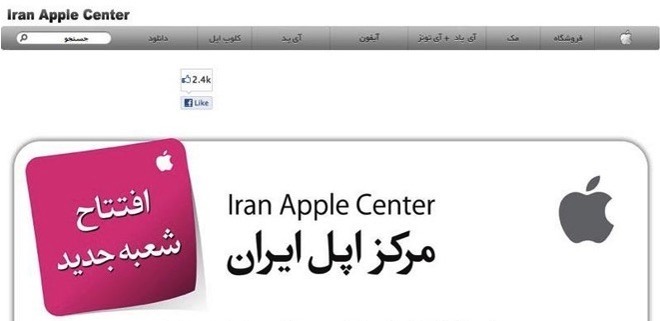Apple removes Iranian apps from App Store, cites U.S. sanctions
Apple over the past few weeks has removed a number of popular Iranian apps from various international iOS App Stores, saying the move is in line with U.S. sanctions against the country.
Due to American sanctions on Iran, Apple does not sell hardware or distribute software in the Persian Gulf republic. However, the company has not actively inhibited Iranian app developers from creating and distributing apps through official App Stores operated in other countries.
That is changing, according to a report from The New York Times that claims Apple is "moving aggressively" to shut down Iranian apps. On Thursday, for example, Apple pulled popular ride-hailing app Snapp from its App Stores, a decision that follows the removal of apps for food delivery, shopping and other services, the report said.
Apple recently informed Iranian developers affected by the crackdown that, "Under the U.S. sanctions regulations, the App Store cannot host, distribute or do business with apps or developers connected to certain U.S. embargoed countries."
Apple spokesman Tom Neumayr confirmed the message as authentic, but declined to further elaborate on the issue.
Though Iranians do not have direct access to iPhones and iPads, many young and wealthy consumers purchase Apple products smuggled into the country. Indeed, black market iPhone trading became such a significant problem that Iran's government reportedly mulled options to allow import of the popular smartphone.
The takedown appears to be an expansion of efforts to restrict Iranian titles that offer in-app transactions. In January, Apple pulled a number of Iran-based iOS apps from the App Store, including online e-commerce service Digikala, citing noncompliance with Iranian Transactions Sanctions Regulations.
Since Apple takes a cut of all App Store purchases, sales from Iranian apps generate revenue and are thus in violation of U.S. law.
Apple first notified Iranian developers affected by the recent takedown in February, the report said. In response, many app makers, including Snapp, transitioned to Iranian online payments system Shaparak, cash or other forms of payment. The move could have prompted Apple's app exodus.
App makers impacted by Apple's decision, like Mahdi Taghizadeh, founder of online delivery service DelionFoods, protested Apple's decision on Twitter. Iran's telecommunications minister, Mohammad Javad Azari Jahromi, also took to Twitter to voice his concern over the app removal.
"11 percent of the cellphone market in Iran belongs to Apple," Azari Jahromi said. "Respecting customer rights is a principle today that Apple hasn't abided by. We will legally pursue the omission of apps."
The minister's statements are of particular interest considering Twitter is a banned service in Iran.
Apple's recent Iranian app removal follows a crackdown on virtual private network (VPN) apps being marketed on the Chinese iOS App Store. In July, the Cupertino tech giant pulled a number of VPN apps from the App Store in observance of government regulations.
Responding to criticism, CEO Tim Cook explained that Chinese regulators recently renewed efforts to enforce existing policy dating back to 2015. The country requires VPN operators to obtain a license, suggesting a bulk of the apps culled from the App Store were likely marketed by developers lacking such credentials.
"We would obviously rather not remove the apps, but like we do in other countries we follow the law wherever we do business," Cook said during an investor conference call in August. "And we strongly believe that participating in markets and bringing benefits to customers is in the best interest of the folks there and in other countries as well. So we believe in engaging with governments even when we disagree."
 Mikey Campbell
Mikey Campbell











 Malcolm Owen
Malcolm Owen
 William Gallagher and Mike Wuerthele
William Gallagher and Mike Wuerthele
 Christine McKee
Christine McKee
 William Gallagher
William Gallagher

 Marko Zivkovic
Marko Zivkovic









